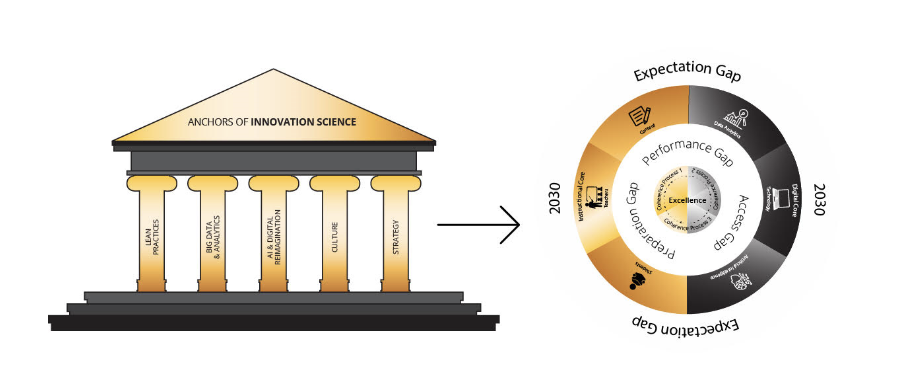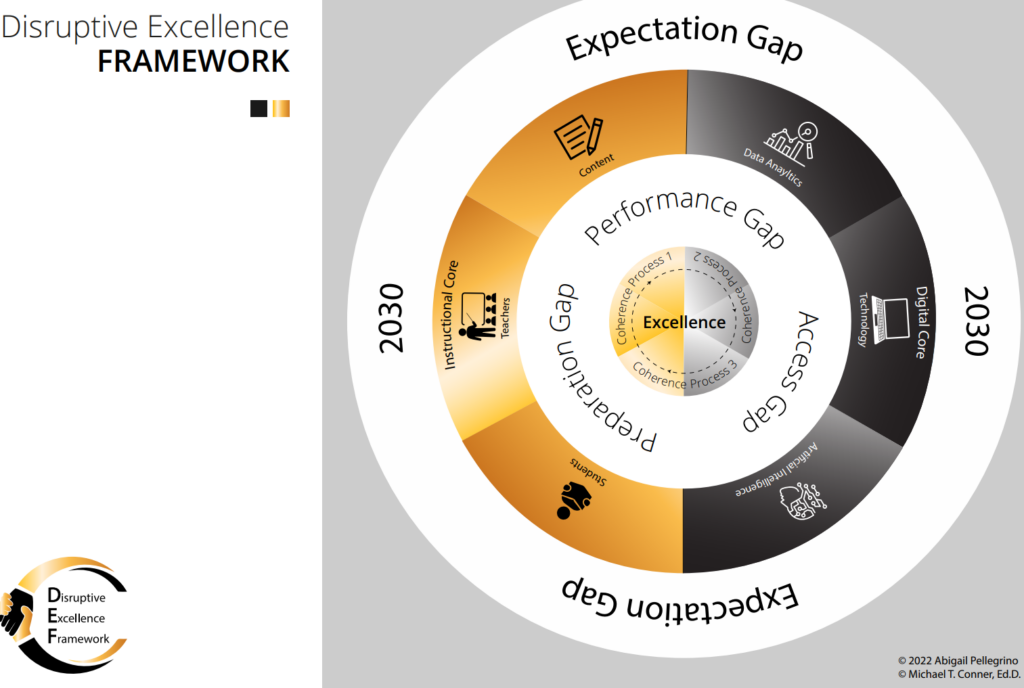Our economy is changing. Globalization, emergent technologies, and data analytics integration are all environmental signs of rapid and profound societal change. Despite the clear signs, our education systems and experiences are not responding and certainly not preparing young people for the complex and changing future. Still, our foundational practices in education underscore an archaic model that continues to exacerbate performance and opportunity gaps in the ecosystem.
Despite current debates and stark policy adoption for additional resources in the ecosystem (i.e., American Rescue Plan Act of 2021), outputs merely reflect micro-improvements to the factory model of education. We must be intentional and bold to design future-focused learning organizations that prioritize skills like entrepreneurship as a core aspect of the PreK-12 pathway. Designing “Schools of the Future” in alignment to the entrepreneurial demand of society is a necessity for 2030 and beyond. How do we achieve this serial transformation with a business model anchored in factory rudiments? Below I highlight and define an entrepreneurial education model that will guarantee agency, voice, and coherence for Generation Z and Generation Alpha.

Defining the Entrepreneurial Education Model for Generation Z and Generation Alpha
Because the education model is static by design (i.e., industrialization), creating operational structures and instructional systems rooted in entrepreneurship will accelerate readiness for the demand of Delta 2030. It will not be easy. Creating learning experiences that prominently feature opportunity and problem-solving is the antithesis of our existing education model realms – labor development. On the contrary, an entrepreneurial education model encourages a diverse agency set with students. Voice and agency empower students to understand their perspectives in-depth and exercise intrapersonal strengths to solve complexities in the global economy. Agency in the context of social and societal equity is building confidence among students to address emergent issues in our communities.

The Design and Strategy Outline to Create an Entrepreneurial Education Model in the AC-Stage of Education
An entrepreneurial education model can be contextualized as a “short cut” to synthetically develop competencies for the 22nd century. In alignment with this evolutionary transformation of learning experiences for Generation Z and Generation Alpha, we must underpin strategic approaches to form a shared mental model in the learning organization (i.e., intentional to culture changes). In essence, the ecosystem must learn, unlearn, and relearn roles, responsibilities, and new cultural norms to implement strategies of a disruptive model rooted in entrepreneurship ideologies. Leaders must become iterative architects that create organizational constructs where adaptive learning through problem-based, problem-seeking, project-based sequences are the core threads in all integrated systems. Classroom teachers must become a hybrid of practitioners and facilitators where the universal acceptance of “we do not know” is the learning experience in lieu of binary answers rooted in static pedagogy. Core programs and curriculum will include investigation and inquiry activities where instructional practices support cycles of new learning. Yes, these shifts will enable Generation Z and Generation Alpha to be co-authors of their learning and personalize rigor for ALL. It will facilitate student competencies that do not focus on the linear business development aspects of entrepreneurship but reimagines a future that impacts society holistically.
Agency, choice, and elevating the voice of the next two generations require innovation and creativity. Designing a new education model requires the multiple perspectives of our families and students. We have to accept being comfortably uncomfortable in the AC-Stage of Education. As a moral imperative, education must respond with vitality to leverage excellence and equity for ALL.
Michael Conner, Ed.D., is the CEO/Founder of Agile Evolutionary Group, Corp., Pathways Fellow for Getting Smart, and former Superintendent of Schools. He is the creator of the Disruptive Effect Model and author of Intentional, Bold, and Unapologetic: A Guide in Transforming Schools in the AC-Stage of Education.
Stay connected with us on social media platform for instant update click here to join our Twitter, & Facebook
We are now on Telegram. Click here to join our channel (@TechiUpdate) and stay updated with the latest Technology headlines.
For all the latest Education News Click Here
For the latest news and updates, follow us on Google News.
